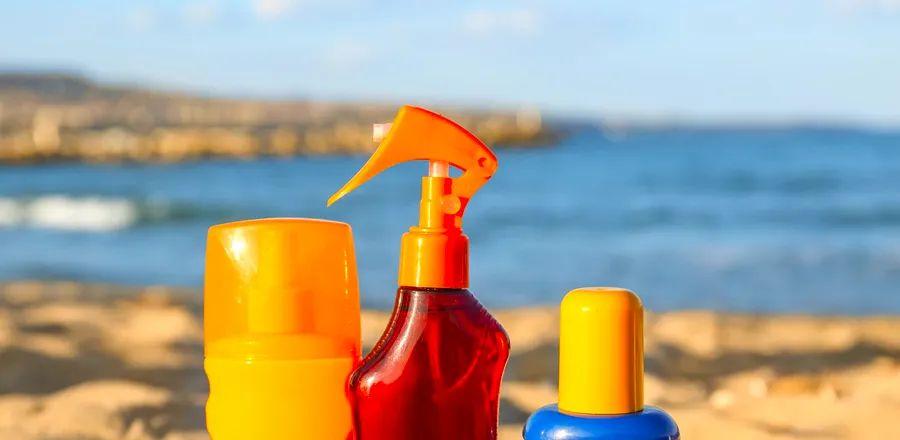Spray vs. Lotion Sunscreens: Which Is Safer?

Spray sunscreens offer distinct advantages over their lotion counterparts: they can be applied swiftly and effortlessly, eliminating the need to rub them in as much. They're also perfect for reaching those tricky spots.
But how secure are spray sunscreens? Are they riskier than lotions? Experts weigh in.
Are spray sunscreens safe for your skin?
Certain spray sunscreens utilize aerosol propellants like propane and butane to achieve the spray effect, while others depend on compressed air for a continuous spray. According to Dr. Zaineb Makhzoumi, a dermatologic surgeon at the University of Maryland Medical Center and an assistant professor at the University of Maryland School of Medicine, these sunscreens are just as safe for the skin as lotion-based sunscreens.
Dr. Makhzoumi argues that concerns regarding the safety of spray sunscreens are baseless. "When patients raise this issue, I inform them that there's no scientific backing for these claims, and I reassure them that spray sunscreens are both safe and effective," she explains.
What impact do spray sunscreens have on marine ecosystems?
Certain chemicals found in some sunscreens can be harmful to coral reefs and marine organisms. However, Camille Gaynus, chief science officer at Black in Marine Science, an organization dedicated to amplifying Black voices in marine research, states that there’s no proof that spray sunscreens pose any greater risk to marine life compared to lotion sunscreens. She emphasizes the importance of distinguishing between physical and chemical sunscreens.
Physical or mineral sunscreens work by reflecting ultraviolet (UV) rays, preventing them from reaching the skin. These sunscreens typically contain active ingredients like zinc oxide or titanium dioxide. Mineral sunscreens, whether in lotion or spray format, are often marketed as safe for reefs.
In contrast, chemical sunscreens absorb UV rays. Active components in many chemical formulations, such as oxybenzone and octinoxate, are suspected to be damaging to coral reefs, leading to bans in places like Hawaii and Key West, Florida.
Gaynus highlights that the collective impact of people interacting with coastal waters, including sunscreen runoff, can harm not only corals but a variety of coastal organisms. She points out that oxybenzone acts as an endocrine disruptor, interfering with the hormones of marine life.
Oxybenzone is also thought to increase coral reefs' susceptibility to bleaching, a process where corals expel the tiny algae that give them their pink hue, ultimately leading to reef death. While Gaynus notes that further research is required to fully understand how chemical sunscreens affect corals, she states, "We know that high levels of oxybenzone in the water can cause corals to bleach at lower temperatures."
Should you choose spray or lotion sunscreens?
When selecting a spray sunscreen, consider several factors. The Food and Drug Administration (FDA) warns that some spray formulations contain flammable ingredients like alcohol and should be kept away from open flames. Additionally, there is a risk of inhalation with spray sunscreens, which can irritate the mouth, throat, and lungs and may provoke asthma attacks in susceptible individuals.
In 2022 and 2023, several popular brands of spray sunscreens were recalled due to the presence of benzene, a known carcinogen, which was inadvertently included in these products.
Dr. Makhzoumi primarily advocates for lotion sunscreens over sprays because they can be applied more uniformly, which is essential for effective sun protection.
"When individuals use [spray sunscreen] outdoors, the wind often disrupts the application, resulting in patchy coverage," Makhzoumi explains. "This can create a false sense of security, as people believe they’ve properly applied their sunscreen. I advise them to be meticulous in their application."
Fortunately, this drawback can be easily addressed. "I recommend applying spray sunscreens indoors to avoid the wind's impact," Makhzoumi suggests.

1

2

3

4

5
Evaluation :
5/5